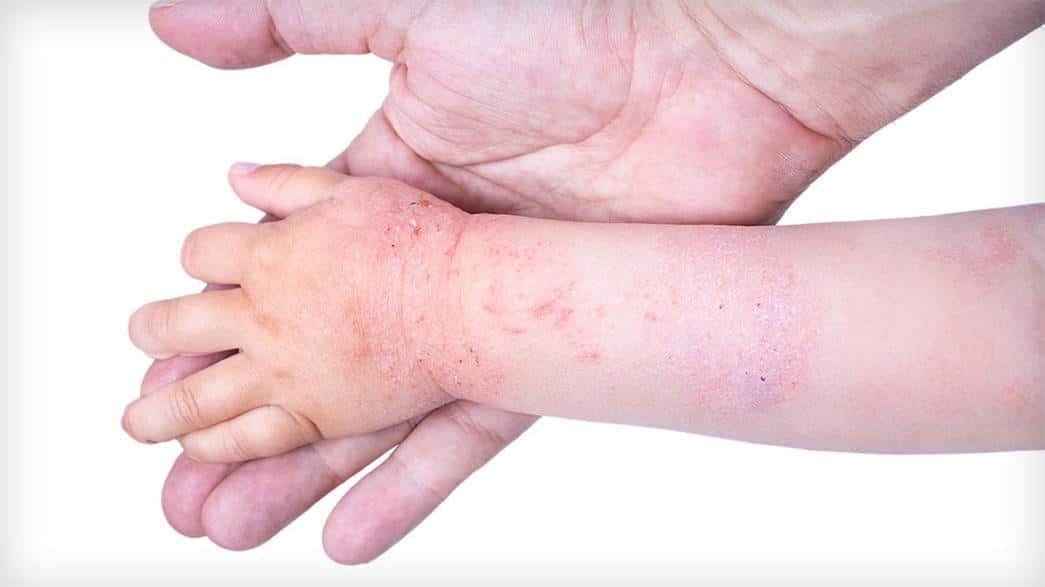Milk allergy symptoms-What are they?
Milk allergy symptoms are variable. You can understand this when your baby feels uncomfortable. We try to learn and try everything to make our baby happy. Let’s go deep into the article to learn about milk allergy symptoms.
Cow milk protein allergy, known as milk allergy, is a reaction that the immune system develops against cow’s milk protein. Our immune system perceives some proteins as foreign substances that must be tackled and develops a reaction against it. These reactions are called allergies. Most of the cow’s allergic bodies also show an allergic reaction to sheep’s milk, soy foods and milk. Breastfeeding has a protective effect against cow’s milk allergy compared with feeding, but despite feeding with breast milk, some babies may have cow’s milk allergy.
It is becoming increasingly common to hear that a child is allergic to cow’s milk protein. But is that really the case? Pseudo-allergic reactions to the additives used in food or to naturally occurring ingredients occur very rarely in infancy and toddlers. Because of the numerous examinations and search diets required, they are also difficult to determine at this age.
Older children and adults often have a food allergy due to a pollen allergy . In older children, adolescents and adults, a pollen allergy is usually the main focus. Through immunological cross-reactions, the body also reacts to certain foods, such as fruits, vegetables or nuts, which are similar to pollen in their protein structures.
Pseudoallergies also occur more frequently in adolescents and adults, in whom – in contrast to an allergy in the narrower sense – no allergy-triggering antibodies can be detected in the organism.

What are the symptoms ?
So if you notice any of the symptoms written below, you should go to the doctor. Our articles are written for information only.
Milk allergies can manifest themselves in a variety of ways. In children, the following symptoms can appear on the various body organs:
Skin: itching, eczema (neurodermatitis), hives, redness;
Mouth: swelling and burning on the lips, tongue and throat;
Nose: swelling, sneezing, runny nose;
Respiratory tract: cough, asthma;
Gastrointestinal tract: vomiting, abdominal pain, colic, diarrhea, constipation, bloody stools.
In infants, growth delays, early satiety, frequent turning of the head and pronounced screaming during feeding, as well as the general refusal of the bottle, can also indicate food allergy.
Milk allergy symptoms can vary in severity. They range from harmless scratching of the throat to severe attacks of diarrhea. The most serious – but very rare – allergic reaction is the so-called anaphylactic shock, which leads to a circulatory breakdown.

How is the treatment of cow’s milk allergy?
If the baby is fed only with breast milk and a diagnosis of cow milk allergy, it is necessary to be careful not to have cow milk protein when the mother eats. Because it can pass from breast milk to baby. The mother should not eat milk, yoghurt, cheese, butter and milk desserts during breastfeeding.
Recipes without milk and dairy products can be tried. In addition, everything he eats should check whether there is milk or milk powder in everything he bought from the market. Meanwhile, the mother may need to use calcium sources other than dairy products or use calcium tablets under doctor control in order to avoid calcium deficiency.
Our previous article How to treat eczema in babies in the title cold urticaria cure treatment ve How to treat eczema information is provided..

Hello, I’m Dorothy. I love writing and researching articles. Reading books about baby health, care and pregnancy is my favorite. I will be sharing delicious and healthy information on food and baby food during pregnancy.












This article was very helpful and informative.